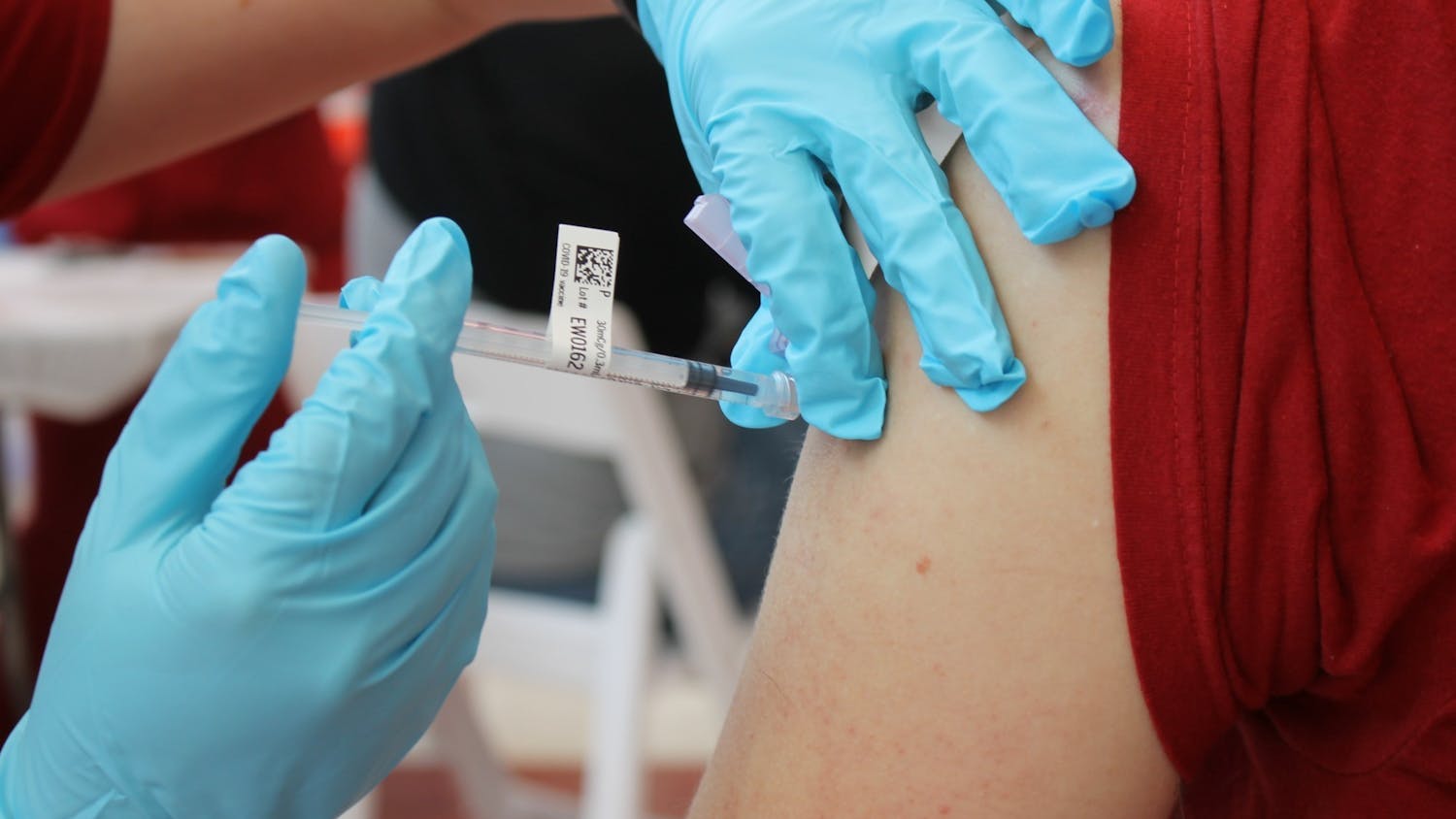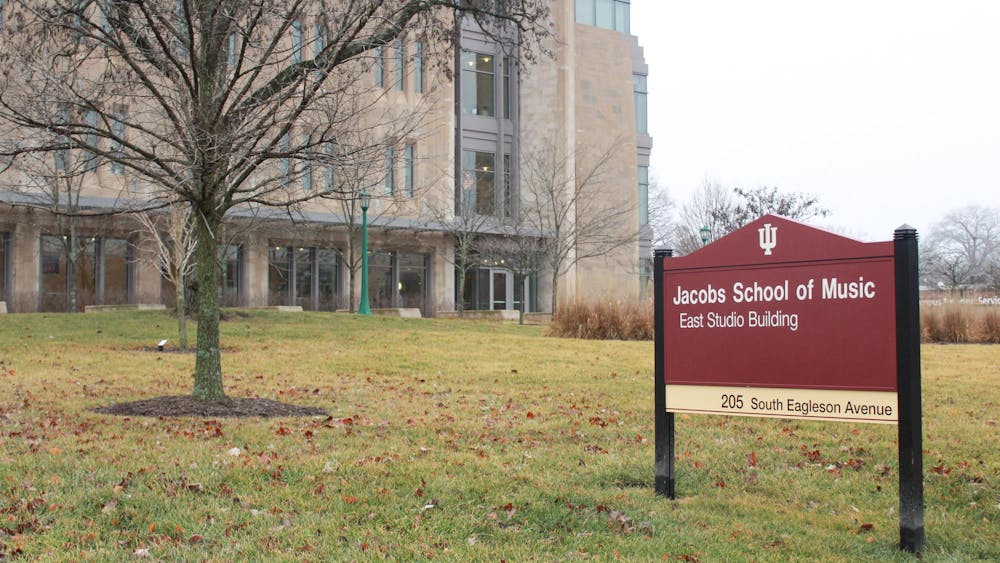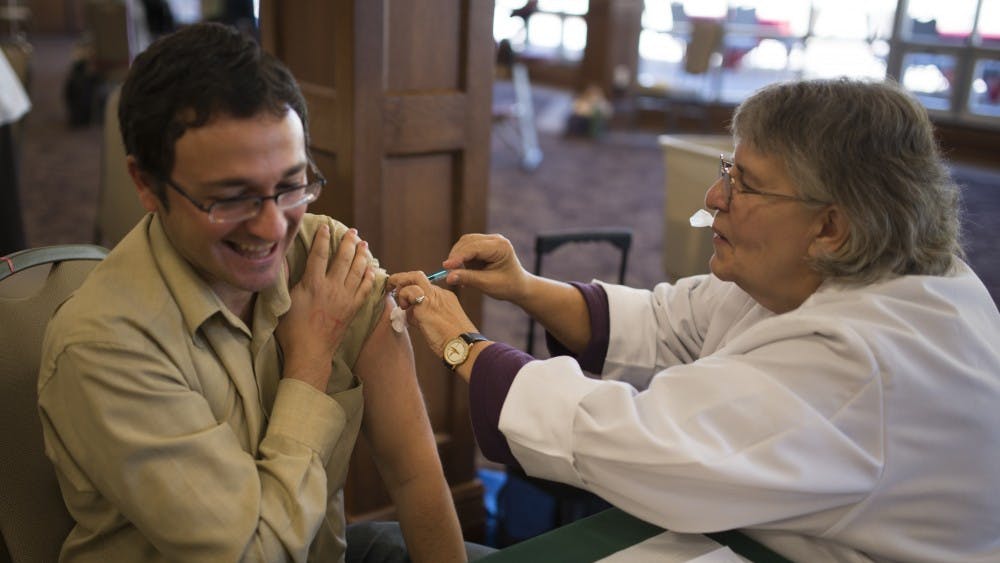The nation’s first known patient diagnosed with the sometimes deadly Middle East Respiratory Syndrome is improving and now in good condition. The Community Hospital in Munster, Ind., is currently preparing to discharge him.
He will be released and confined to home isolation, where he will remain in home isolation until the Indiana State Department of Health and Centers for Disease Control and Prevention deem he is not an infectious risk to the public, the Community Hospital in Munster said in its most recent statement.
On April 28, the unnamed patient reported to the emergency room after experiencing respiratory issues. The patients’ symptoms and travel history prompted Indiana public health officials to test the patient for MERS, said Dr. Anne Schuchat, director of the National Center for Immunization and Respiratory Diseases at the CDC. The following day, the Indiana State Public Health Laboratory and CDC confirmed the MERS infection in the patient.
“We were alerted by the Indiana State Department of Health on the night of May 1st that the patient tested positive for MERS,” said Jason McDonald, spokesperson of CDC’s National Center for Immunizations and Respiratory Diseases. “They sent a sample that morning to the CDC, and they tested it to confirm the diagnosis.”
After the patient’s diagnosis was confirmed, he and the hospital workers who first came into contact with him were isolated from the general public.
There is no anti-viral drug or vaccination to remedy MERS. However, after being provided with oxygen support and basic medical support, the MERS patient health has progressively improved. The MERS virus is comparatively new to humans and was first discovered in 2012 in Saudi Arabia, McDonald said.
The patient is an American citizen who works as a healthcare provider in Saudi Arabia where the number of infected MERS patients continues to increase.
“There have been over 400 cases reported since it was discovered in 2012, all of which have been linked to six countries in or near the Arabian Peninsula,” McDonald said.
The patient flew from Saudi Arabia to London and then to Chicago on April 24. He then took a shuttle bus from O’Hare International Airport Chicago to Highland, Ind. Three days later, he began exhibiting respiratory symptoms, including shortness of breath, coughing and fever, according to a statement by Community Hospital in Musnter.
MERS is caused by a type of virus called a coronavirus.
The fatal SARS virus, which killed more than 700 people from November 2002 to July 2003, is also a coronavirus. Consequently, the MERS outbreak has the American medical community on high alert.
“We’re watching this closely, because in the cases that have been reported, about 30 percent of those infected die,” McDonald said. “That’s a pretty high mortality rate.”
Despite its recent arrival on American soil, MERS has been anticipated to enter the U.S. since its discovery in 2012.
“In this interconnected world we knew it was probably only a matter of time until it reached the United States,” McDonald said. “We’ve been preparing for MERS for a year and a half.”
As a result, once the CDC became aware of the patient in Indiana who tested positive for MERS, they were primed to tackle the situation.
“We were alerted,” McDonald said. “We were prepared for it and took the appropriate steps to properly identify it, isolate the patients and provide treatment.”
While the MERS virus is contagious, there isn’t any evidence that it’s able to transmit easily between people in the community, McDonald said. The MERS virus is believed to require close contact for transmission.
“People who treat MERS patients in a hospital setting or those who they live with that may be caring for them while they’re ill are at the greatest risk,” McDonald said.
The Community Hospital employees that had direct contact with the patient are in temporary home isolation and are being monitored for symptoms, according to the hospital’s latest statement. These employees will be permitted to return to work following the 14-day incubation period and confirmed negative test results for the MERS virus.
“All the employee lab results have been negative thus far, which is great news,” Community Hospital Chief Medical Information Officer Alan Kumar, M.D., said. “We have contained the exposure, we will continue to monitor the situation.”
Indiana citizens are at a low-risk, but are advised to keep alert.
“Check for fever, shortness of breath and coughing,” McDonald said. “If you start to notice any of the symptoms contact your physician as soon as possible. It’s a standard recommendation to protect yourself from respiratory illness.”
If someone in Bloomington were diagnosed with MERS, IU Health Bloomington would follow the same procedures as the Community Hospital in Munster, Infection Preventionist at IU Health Bloomington Jean Young said.
They would have collaborated with the CDC and the Indiana State Department of Health to remedy and constrain the expansion of the contagion. The patient would have been quarantined following IU Health Bloomington’s meticulous prevention strategy.
“If the patient is hospitalized, the patient would be placed on contact precautions in an airborne infection isolation room equipped with a special air handling and ventilation system,” Young said.
However, the risk to the general population is very low, Young said. Still, she encouraged good hygiene.
“It’s always a good idea to wash your hands often. Avoid touching your eyes, nose and mouth with unwashed hands. Clean and disinfect frequently touched surfaces, such as doorknobs. Cover your nose and mouth with a tissue to cough or sneeze, and avoid close contact such as kissing, sharing cups or eating utensils with sick people.”
Now that the imminent threat is temporarily contained, the CDC advises the public to monitor themselves.
MERS patient in good health
Get stories like this in your inbox
Subscribe




